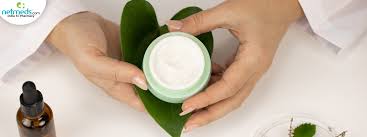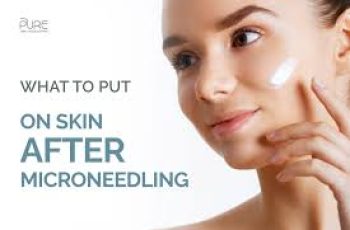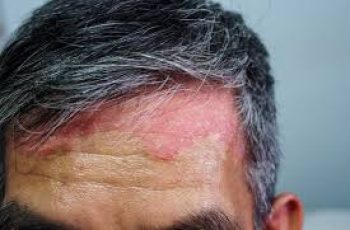
Probiotics in skincare – Should I be using them?
You’ve all no doubt seen an advert on TV boasting the benefits of drinking probiotics or having them in yoghurt. Proven to help with the promotion of a healthy gut it’s no wonder they have made their way into our skincare routine, one product at a time. Yep, you’ve heard right, probiotic skincare products.
Do they work? Are they beneficial for an overall healthier skin? Let’s explore further to find out!
What are probiotics?
Probiotics are a live bacteria (don’t worry, the good kind of bacteria) and yeast that aid the overall health of your gut and digestive system. You can generally find them in yoghurts and supplements which help with balancing the bacteria found in the body. If bloating, stomach cramps and any other gut issues are a regular problem for you, probiotics may be the answer to all your worries!
This is, of course, the general benefits of probiotics and it has been discovered that introducing them to your skin can have the same effect! With their calming and balancing properties, skin concerns such as blemishes, redness and excess sebum, probiotics restore the skin to its healthiest, balanced self again.
What do probiotics do for your skin?
In the most simple terms, much like the probiotics found in yogurts, drinks and supplements, topical treatments and products will have a calming effect on the skin by giving it a boost in good bacteria for the skin cells to flourish and help restore balance back into your skin, be it on the body or your face. If you imagine your skin is like a city, with millions of bacteria residing on it, all busy getting on with their jobs. These bacteria, which are called resident bacteria, are on your skin constantly. What probiotics can do is to keep them protected and fend off any new “bad” ones that come and try to disrupt the population.
Now this part gets a little bit more “science” the ecosystem found on your skin is made up of natural bacteria and its role is to protect the body, so you can imagine, it’s an important job right? It’s a tough one too as with the climate and everyday lifestyle, this ecosystem gets damaged regularly, which is why more than ever people are complaining more of dry, sensitive and generally stressed out skin! With the addition of probiotics and prebiotics, you are giving the skin a chance to rebuild a healthy ecosystem which means you get the glow back your skin should always have! You’ve got to remember that even though the top layers of your skin are technically at the end of its cycle and ready to shed away, the overall appearance of your face relies on those layers staying hydrated and looking healthy.
Not only do probiotics help calm and protect, but they are also wonderfully clever and work well with other skincare ingredients. Once they begin to work their way into the skin you will also find new ingredients develop, such as hyaluronic acid, vitamins and peptides. All of which is a powerful blend of diminishing signs of ageing and giving the skin better hydration with restored radiance back in your skin. Here is a little run down of the benefits of skincare containing probiotics.
Allows the skin to remain properly hydrated throughout the day
Improves dryness and stops the skin feeling tight and uncomfortable
Strengthens the skin to stop environmental aggressors
Restores the overall pH balance to the skin
Now you must admit that is some hard-working ingredients and deliver outstanding results!
Should I be using probiotics in my skincare?
Everyone will benefit from probiotics in their skincare, your skin will encounter several aggressors and won’t have the power to keep them at bay on its own! Using a topical product containing good bacteria probiotics will form a protective blanket over the skin. There are some skin types however that will benefit from using them more.
Probiotics for Sensitive Skin
Sensitive skin usually means your skin’s natural barrier is damaged, allowing irritates and aggressors to cause a reaction. Probiotics help to strengthen the barrier and rebuild any areas that are already damaged! Your skin can indeed heal on its own, but with the addition of probiotics to your skincare routine, you will find your skin repairs quicker and feels more comfortable. Redness and flaky areas that could be on the face before will appear reduced and calmed too.
Probiotics for Blemish-Prone Skin
If you have a blemish or even acne-prone skin, you would have tried many treatments and products to help combat the problem. Some of you may have reached out to your doctor in the hopes they would have the answer, with antibiotics usually being used. The only worry with using antibiotics to tackle acne is that it tends to wipe out all sorts of bacteria on the skin. Great for all that “bad bacteria” that fuel the problem, but not so good for that hard-working “good bacteria” that balances the skin’s surface.
Having said this, antibiotics are generally still used for helping acne sufferers. This could be due to change, however, as many skincare experts and dermatologists finding probiotics are the Holy Grail of blemish banishing! Studies have revealed that skincare products containing a certain type of probiotic found in yoghurt, called lactobacillus, which is remarkable at fuelling the good bacteria and restoring the skin, killing off the bacteria that develops into more blemishes and spots. Some experts, such as Marie Drago, have been quoted to say they see antibiotics taking a back seat in treating acne with probiotics delivering faster results leaving the skin healthy and maintaining its natural balance.
Probiotics Calm Skin Redness
Much like sensitive and acne-prone skin, if you find redness is your main skin concern using skincare containing probiotics will help calm and rebuild the skin’s barrier. Much like the settling benefits of probiotic yoghurt for the gut and digestion, the skin sees the same results.
Other things to consider
Believe me or not, but your location and where you live has an effect on your skin, and using a probiotic skincare routine will help any concerns you may have.
City Dwellers
There’s no denying it that you city folk have to deal with a lot when it comes to your skin. With pollution throwing a large number of aggressors that affect the comfort and overall health of your skin, leaving it irritated and clogged with bacteria an build up.
With probiotics, they can form a protective shield around the skin, stopping pollution, bacteria etc from affecting the skin and causing reactions, irritation or blemishes.
Countryside
Pollution isn’t as much as a concern for you all out in the countryside. With the weather and environmental aggressors, such as tree and floral pollen, becoming the main factors of skin flare up and irritation, admittedly not as severe as it would be in the city and usually clears up a lot quicker.
Coastal
Much like countryside dwellers, coastal habitants will be at the mercy to the elements. Not an ideal situation for sensitive and dry skin types, especially with sea air and winds full of skin drying salt. Fabulous for blowing out those cobwebs and clearing the head, terrible for keeping the skin hydrated. Applying probiotics will work wonders, image a sponge pudding that has been overcooked, dry and unappetising, drowning it in thick cream completely transforms it, much like a probiotic enriched moisturiser will do for your tired, dry, uncomfortable skin.
So, there you have a little more information about probiotics and how they work within skincare products and make a great addition to your skincare routine. Especially if you have the skin types or live in the areas previously mentioned. As off-putting it sounds to hear how applying bacteria to your skin will be beneficial, what you have to remember is that these are “the good guys” and come in a million various strains or types that can aid you in any way from your gut right the way to your glow!


